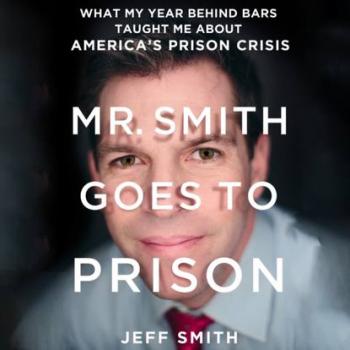Jeff Smith
Список книг автора Jeff SmithMr. Smith Goes to Prison
The fall from politico to prisoner isn't necessarily long, but the landing, as Missouri State Senator Jeff Smith learned, is a hard one.In 2009, Smith lied to the Feds about seemingly minor campaign malfeasance and earned himself a year and a day in Kentucky's FCI Manchester. Mr. Smith Goes to Prison is the fish-out-of-water story of his time in the big house; of the people he met there and the things he learned: how to escape the attentions of fellow inmates, like a tattooed Klansman and his friends in the Aryan Brotherhood; what constitutes a prison car and who's allowed to ride in yours; how to bend and break the rules, whether you're a prisoner or an officer. And throughout his sentence, the senator tracked the greatest crime of all: the deliberate waste of untapped human potential. Smith saw the power of millions of inmates harnessed as a source of renewable energy for America's prison-industrial complex, a system that aims to build better criminals instead of better citizens. In Mr. Smith Goes to Prison, he traces the cracks in America's prison walls, exposing the shortcomings of a racially based cycle of poverty and crime. Smith blends a wry sense of humor with academic training, political acumen, and insights from his year on the inside. He offers practical solutions to jailbreak the nation from the financially crushing grip of its own prisons and to jump-start the rehabilitation of the millions living behind bars.
Film Criticism, the Cold War, and the Blacklist
Film Criticism, the Cold War, and the Blacklist examines the long-term reception of several key American films released during the postwar period, focusing on the two main critical lenses used in the interpretation of these films: propaganda and allegory. Produced in response to the hearings held by the House Committee on Un-American Activities (HUAC) that resulted in the Hollywood blacklist, these films’ ideological message and rhetorical effectiveness was often muddled by the inherent difficulties in dramatizing villains defined by their thoughts and belief systems rather than their actions. Whereas anti-Communist propaganda films offered explicit political exhortation, allegory was the preferred vehicle for veiled or hidden political comment in many police procedurals, historical films, Westerns, and science fiction films. Jeff Smith examines the way that particular heuristics, such as the mental availability of exemplars and the effects of framing, have encouraged critics to match filmic elements to contemporaneous historical events, persons, and policies. In charting the development of these particular readings, Film Criticism, the Cold War, and the Blacklist features case studies of many canonical Cold War titles, including The Red Menace , On the Waterfront , The Robe , High Noon , and Invasion of the Body Snatchers .

